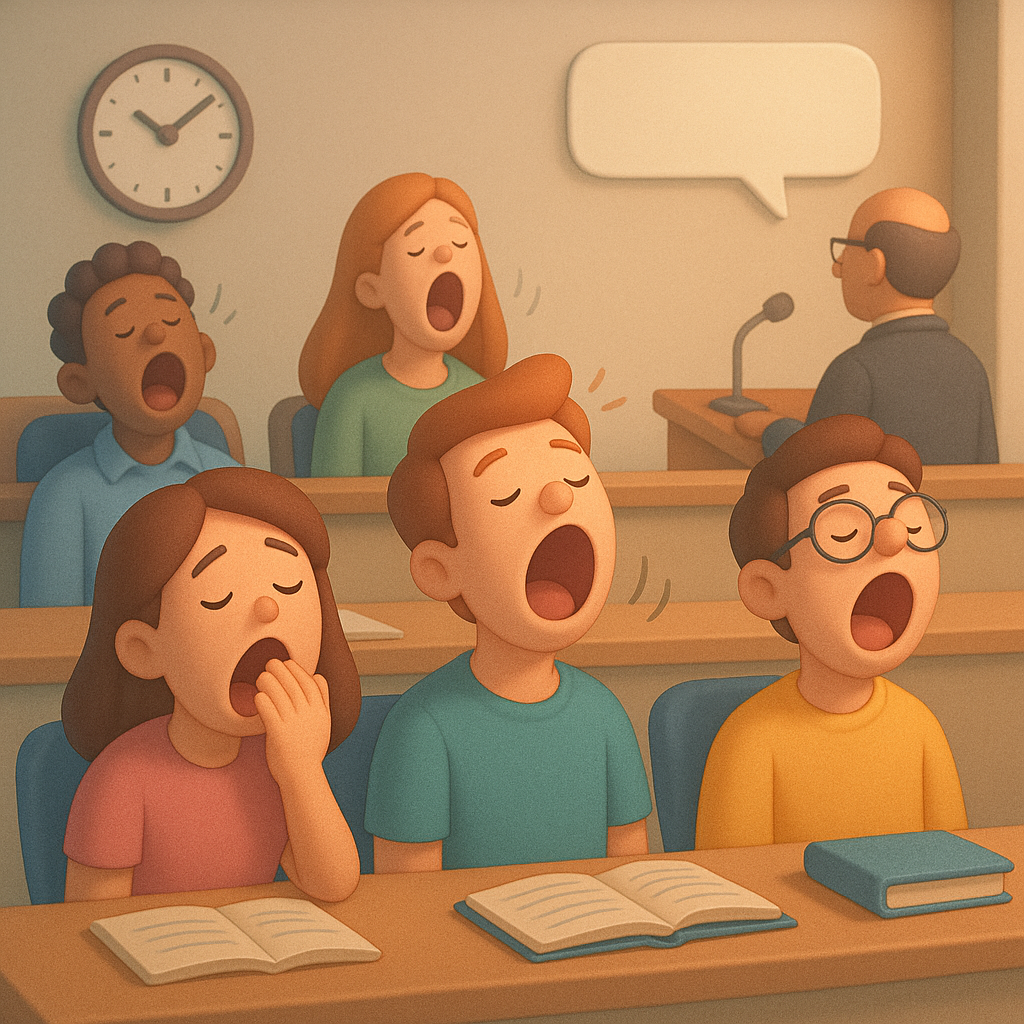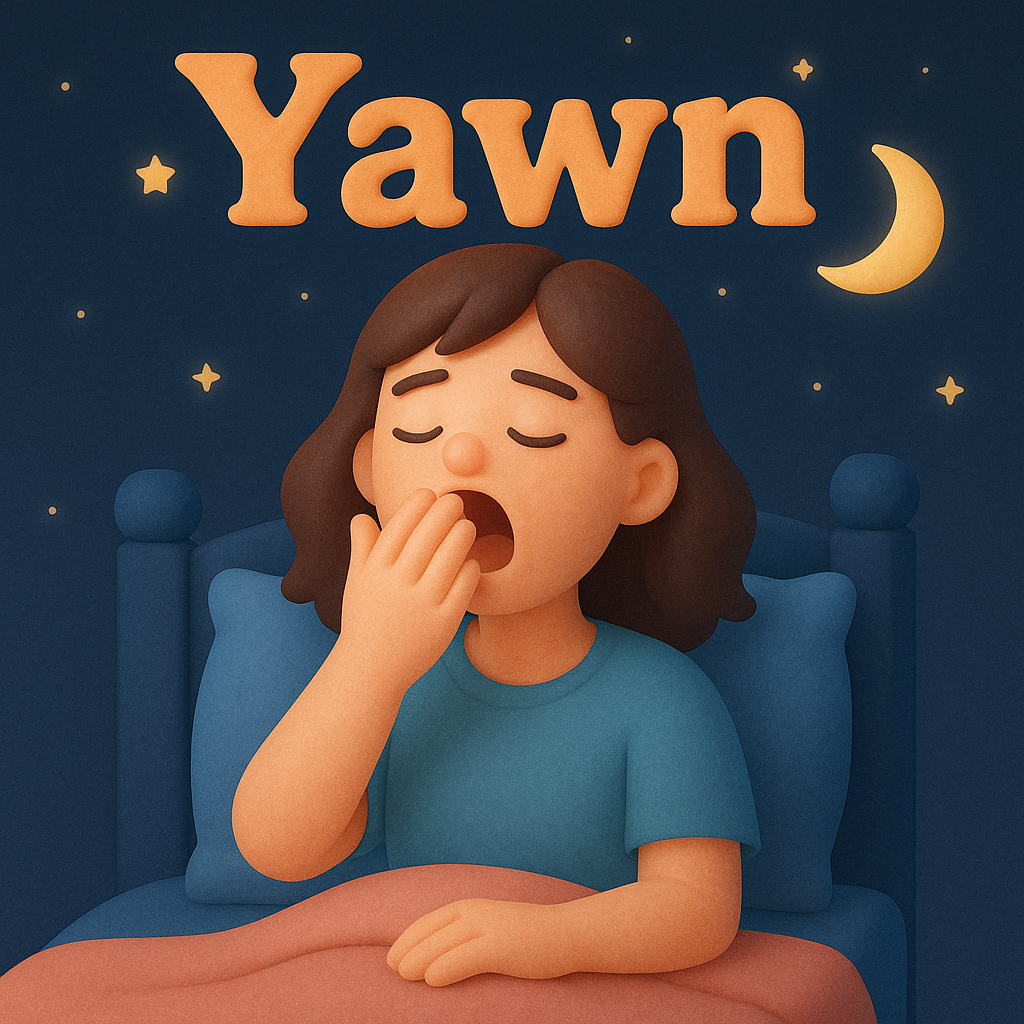Yawn
Definition
Yawn can function as a verb meaning to involuntarily open the mouth wide and inhale deeply, often as a reflex in response to tiredness, boredom, or drowsiness; as a noun, it refers to the act of yawning.
Parts of Speech
- Verb (intransitive)
- Noun
Pronunciation
American English
- IPA: /jɔn/
- Respelling: YAWN
British English
- IPA: /jɔːn/
- Respelling: YAWN
Etymology
Middle English: from yawnen, from Old English gānian ‘to gape, yawn’; related to Old Norse gāna and Dutch gaauwen.
Derivatives
- yawned (verb past)
- yawning (verb gerund/adjective)
- yawner (noun) – something that causes yawning or a person who yawns frequently
Synonyms
- (verb) gape, inhale deeply
- (noun) gape, deep breath
Antonyms
- stifle
- suppress
- hold (one’s breath)
Usage
Verb: The verb "yawn" is used to describe the involuntary act of opening the mouth wide and inhaling deeply. For example, "He yawned repeatedly during the late‐night meeting," or "Don’t be surprised if you yawn when you’re tired."
Noun: The noun "yawn" refers to the act itself or the sound made. For example, "A loud yawn echoed through the silent auditorium," or "She tried to hide her yawn out of politeness."
Related Terms
- Fatigue: A state of extreme tiredness or exhaustion.
- Drowsiness: A feeling of sleepiness or lethargy.
- Boredom: A state of being weary and restless through lack of interest.
- Stretch: To extend limbs to relieve tension, often accompanying a yawn.
- Circadian rhythm: The natural internal process regulating the sleep‐wake cycle.
Detailed Definitions
Verb
- To involuntarily open the mouth wide and inhale deeply – a reflex often triggered by tiredness or boredom.
- Example: "Students yawned in unison as the lecture dragged on."
- To indicate tiredness or boredom through a reflexive action – serves as a nonverbal cue.
- Example: "She couldn’t help but yawn after staying up all night."
Noun
- The act of yawning – the physical reflex of opening the mouth wide and inhaling.
- Example: "A contagious yawn spread through the group."
- A reflexive inhalation often accompanied by stretching – sometimes signaling physiological need for oxygen or alertness.
- Example: "His yawn was so loud that it woke his neighbor."
yawn








